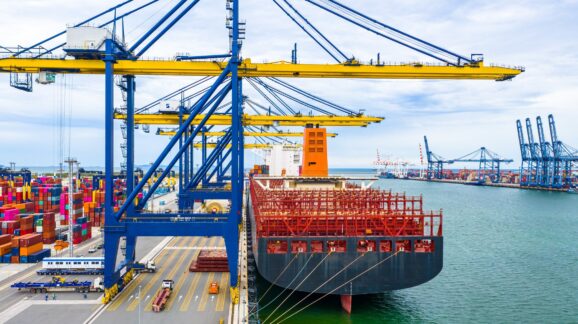Why Trump and Biden are wrong to sweat a trade deficit

Photo Credit: Getty
Do trade deficits make American workers worse off? Trade deficits occur when a country imports more goods than it exports, which the U.S. has done for decades. The Trump and Biden administrations have argued that trade deficits justify high tariffs. White House officials have also blamed these deficits for economic ailments such as falling wages and unemployment.
Opposition to trade deficits is based on a misunderstanding of the nature of trade. Trade occurs not between entire countries, but between individuals and firms. Voluntary trade is, by definition, mutually beneficial, otherwise why would the parties agree to trade?
Trade deficits occur all the time between households, businesses, and states. For example, most people run trade deficits with their grocery store because they purchase more goods from the store than they sell to the store. Nobody claims that tariffs are necessary to redress this imbalance. Why is trade across borders any different?
Protectionists claim trade deficits are responsible for unemployment and for lower wages for American workers. This may be true for a few specific industries. If tariffs reduce trade deficits, some workers will find new jobs in sectors that have a hard time competing domestically or will keep their current jobs and earn more income. This in turn makes everyone else worse off.
The Tax Foundation estimates that former President Trump’s tariffs reduced long-run GDP and wages. Tariffs also failed to achieve his goal. A recent Cato Institute study shows that Trump’s tariffs failed to significantly reduce the size of the trade deficit.
Tariffs benefit a small number of industries by shielding them from competition and allowing protected firms to charge higher prices. This can raise wages and increase employment in those particular industries, but everyone else pays for it through price increases.
Let’s look at some of those increases: Consumers pay more for the goods they need, increasing their cost of living and decreasing their real wages, or the amount of goods they can buy with their income. Producers in downstream industries face higher production costs, so they must lay off workers and cut their wages.
Steel tariffs helped steel companies, but hurt the auto and construction industries, who paid more for the same steel. The benefits of tariffs are concentrated in a few industries, while the costs are dispersed on everyone else.
Trade deficits are not inherently bad. In truth, they are little more than an accounting measure. And the Trump-Biden tariff hikes have been a double failure. Not only do these tariffs cost American consumers around $51 billion per year, they haven’t even reduced the targeted trade deficit.